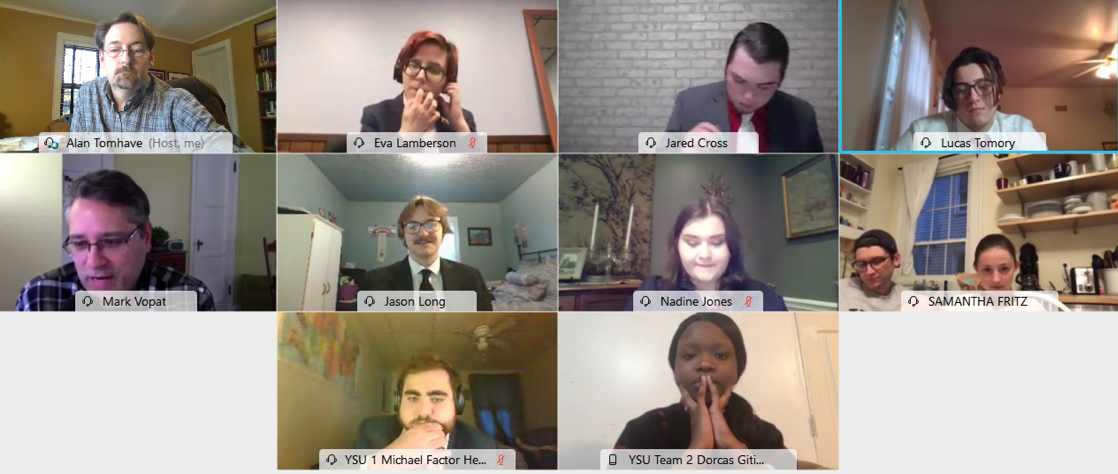They're at it again: Ethics Bowl team wins regionals for fifth straight year

Youngstown State University took the first step to defending its national Ethics Bowl title by again winning the regional tournament.
It’s the fifth consecutive year that YSU has taken the top spot in the Central State Regional Ethics Bowl contest, and it’s the sixth consecutive year that the university has qualified for the national competition in February 2021.
The regional tourney, conducted virtually earlier this month, included two teams from YSU. The team consisting of students Eva Lamberson, Michael Factor and Lucas Tomory placed first and moves to the national finals. YSU’s other team of students Dorcas Gitimu, Jared Cross, Nadine Jones and Jason Long placed fourth in the region.
“They are truly an amazing group of students,” said Alan Tomhave, associate professor of Philosophy and Religious Studies and one of the team’s coaches. Mark Vopat, professor of Philosophy and Religious Studies, is the other coach. “We could not be more proud of both teams, and we look forward to nationals preparations and seeing what they can do next.”
YSU won the national competition for the first time earlier this year in Atlanta, besting squads from universities and colleges across the country, including Stanford and Yale. Factor and Lamberson were also members of that championship team.
The contest, sponsored by the national Association for Practical and Professional Ethics, focuses on a set of cases that teams have slightly less than two months to study and research. At the competition, teams do not know which of the cases they will have to address, nor do they know the question that they will have to answer. Further, they are not allowed any notes on the research that they have done on any of the cases. Once a case is revealed and the question is asked, the team has either one or two minutes (depending on whether it is a regional or national Ethics Bowl) to prepare a presentation. The presentation must offer a moral argument to answer the question and consider potential objections to the team’s position. A second team then provides a commentary on the first team’s argument, with the original team then getting a chance to respond. Finally, there are three judges who get to ask questions.
